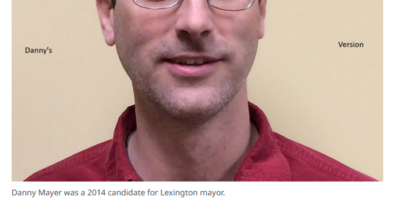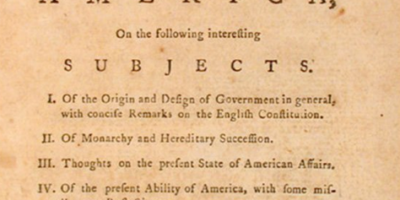Murder, hatred and George Zimmerman
By Marcus Flores
State prosecutors in Florida, evidently dissatisfied with convicting George Zimmerman of atonable recklessness, have recently announced that they may try Zimmerman for a hate crime because he “profiled and stalked” Trayvon Martin before killing him. Is this account genuine?
Imagining the scene of any crime is a formidable task for even the most distinguished detective. Re-creation relies on evidence and witness testimony. Physical evidence gathered following the February 26 encounter consisted of two components: Trayvon’s scraped knuckles and Zimmerman’s head wounds—which, in tandem, are consistent with a fist fight. Zimmerman cannot be vindicated on basis of this evidence alone; the wounds speak not to who started the fight but only who came up short during it.
Meanwhile, witness accounts of that tragic evening have flipped and flopped. One cannot be sure, now, whether or not there even was a chase. Obscured by nightfall and rain, one cannot be sure if it was Trayvon pummeling Zimmerman or the reverse. One cannot be sure if the anguished cries for help are those of Zimmerman or Trayvon. Everything is known except for what actually happened. And, given the unnecessarily immense gravity of the case, most jurors and witnesses are probably afflicted with understandable bouts of the “Am-I-sure-I-saw-what-I-saw?” syndrome.
Here’s a possible scenario. Zimmerman, perhaps feeling more like a cop than a neighborhood watch volunteer, comes across a black teen in an area said to have been recently burglarized by black teens. Disavowing both the 911 Operator and common sense, Zimmerman confronts the teen, who, innocent, rightly takes offense at his meddlesome follower. Tempers flare, fists fly. Then a muffled pistol report, and silence. Even if a distant camera caught the incident, no one could be sure of what words were exchanged to escalate the conflict.
The media, on the other hand, sought to introduce an element of the crime as injurious as it is ambiguous: that of race. Because Zimmerman likely surveyed Martin with foreknowledge of the recent burglaries, labeling him a racist is to take a very basic identifying factor and spin it off as a prejudice. NBC News bears a hefty share of culpability here given its either really biased or really dimwitted editing of the phone call between Zimmerman and the 911 operator. In the original cut, the dispatcher calmly asks, “Is he [Martin] black, white or Hispanic?” “He looks black,” replied Zimmerman. The widely released edit portrays Zimmerman as profiling Martin without prompt. Well done, NBC.
As is often the case with media blunders, the damage was done; Zimmerman was a racist before the details even solidified. It’s worth taking a look at the legal definition of a hate crime, which, according to the Matthew Shepherd Hate Crimes Prevention Act, is such if it is motivated “by the actual or perceived race” of a victim. One cannot be sure if Zimmerman followed Martin solely because of his race or because he was genuinely concerned with the previous burglaries. Given the legal basis of establishing intent “beyond all reasonable doubt” (my italics), there is room enough to believe that Zimmerman’s supposed antipathy toward a particular race is reasonably questionable. It is the difference in recklessly killing someone who happens to be black and willfully killing someone because they are black.
If there is any silver lining, the Zimmerman trial illustrates a potentially seminal social shift given its proximity to America’s youth. Teens, generally unconcerned with sociopolitical matters, have rallied to secure justice for Trayvon. However promising, these campaigns occasionally miss the mark. Public response has been proportional to a hypothetical crime wherein a menacing white fiend hunts and murders a black man for thrill—which actually happened in Jackson, Mississippi on June 26, 2011.
Early that morning, a drunken Deryl Dedmon jumped behind the wheel of a pickup with the stated intention of “fucking with some niggers,” found James Craig Anderson, and ground him to a bloody pulp. Anderson, an unsuspecting autoworker, was returning to his car in a hotel parking lot when Dedmon and his maniacal troupe of rednecks decided the man’s skin color warranted murder. Dedmon boasted to his cohorts of having “ran that nigger over.” Let me be ambiguous: this was a hate crime.
The reaction to Anderson’s death attracted a small gathering of some 500 clergymen and community members. It briefly made national headlines but was quickly forgotten. Here was a hate-murder, a Reconstruction era relic worthy of Faulkner. For his despicable act, Dedmon received a life sentence. Charged with a hate crime, Zimmerman could face a similar sentence or the death penalty. Despite the tragedy of two innocent black men losing their lives, one has to ask, are the two crimes at all comparable?




Sean McElroy
I appreciate your raising the question “was this [killing of Trayvon Martin] a hate crime?”, but in my opinion your editorial is as skewed as you portray the media to be. From the many inaccuracies and misstatements in your piece, here are a couple of the most critical ones that I hope will cause you to take a second look at your analysis of the Trayvon Martin case. First, you put quotes around the words “profiled and stalked” as if Zimmerman did not actually profile or stalk Martin. We know for a fact that he profiled Martin as a suspicious person, in his words “up to no good”, who Zimmerman thought may have been high (refer to the 911 recording). We know that Martin was stalked because Zimmerman got out of his car, told the dispatcher that Martin was running, and finally caught up with Martin several yards away. Next, you mention only two pieces of physical evidence recovered from the crime scene. What you fail to notice is that the bullet lodged in Martin’s chest is a piece of physical evidence- in fact, the most important one. The last error I will point out, is the point at which you contradict your own viewpoint (where you believe there is no solid evidence in anyone’s favor) by introducing a “possible scenario”. Here, the words you choose make a solid case for Zimmerman having committed murder. By saying that Martin was “confronted” by a “follower” (another word for stalker), you create a scenario where Zimmerman was the aggressor and that Martin was rightly defending himself. This is no doubt a case of murder (in the second degree). Whether or not it is a hate crime depends on how you interpret Zimmerman’s comment to the dispatcher “they always get away”.
Marcus Flores
I appreciate the criticism of the piece, though I think you have misread a few points. My use of quotes for “profiled and stalked” is not to excuse Zimmerman for following Martin, but the events immediately after the 911 call are subject to witness testimony which has changed several times, see my link in the piece. Zimmerman was indeed reckless to disregard the 911 dispatcher. However, “profiled and stalked” suggests far more predatory behavior than investigating/following a person who looks “up to no good,” which is why I compared Martin’s death to Anderson’s hate-murder (a wholly malicious crime not in the least concerned with stopping a potential criminal).
I only mention the two pieces of evidence relative to my editorial. I did not think it necessary to mention the bullet since no one has disputed that Zimmerman killed Martin with a pistol. The key question is this: to what extent was the killing self defense and by how much, if any, will those circumstances ameliorate Zimmerman’s sentence? I included the physical wounds to show that Zimmerman may have been injured in one of two ways: 1) he may have been assaulted by Martin and fired in “self defense” or 2) he may have assaulted Martin, was on the losing end of a fight he chose, and so fired in “self defense.” The latter will carry a far heavier sentence than the former.
My goal with the piece was to challenge the idea of this killing as a “hate crime.” I would say no sane observer believes Zimmerman is wholly innocent. But when you suggest that I contradict my own viewpoint, I am using the unknown exchange between Zimmerman and Martin to impugn the idea of interpreting this killing as somehow racially motivated. We don’t know what was said or what happened between them. (I also never once questioned the idea of this as a case of second degree murder.) Lastly, I find it rather difficult to take seriously your idea that interpretation of Zimmerman’s comment (“they always get away”) carries the weight of a hate crime. If Zimmerman believed Martin was a burglar, then his statement that “they always get away” is overwhelmingly true–the FBI claims that roughly 1 in 10 burglaries are ever solved. Either way, “they always get away” is not in any way slanderous to any race and therefore not indicative of a racial killing.